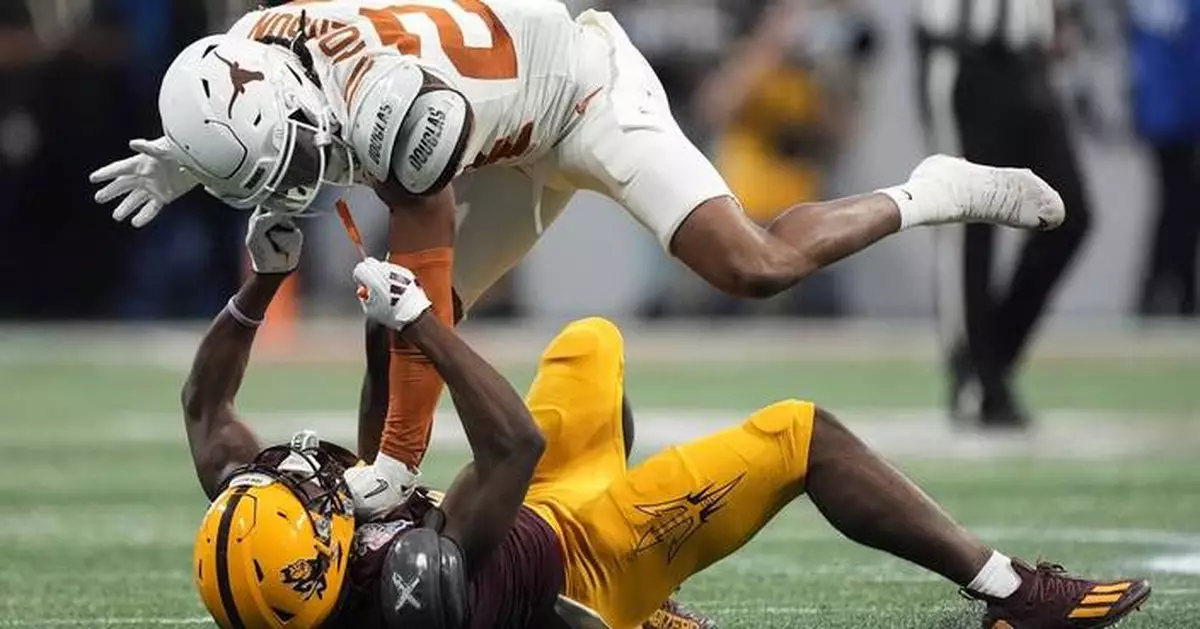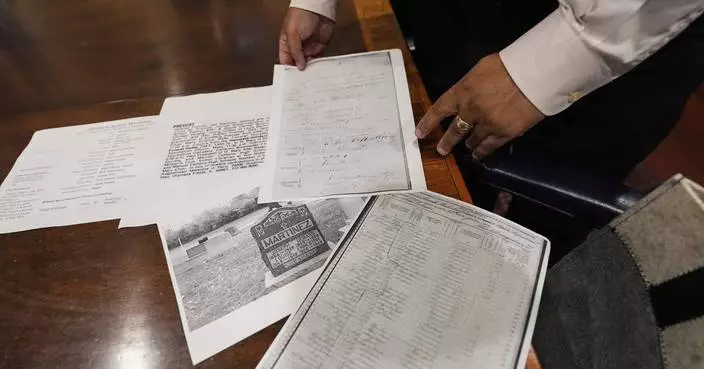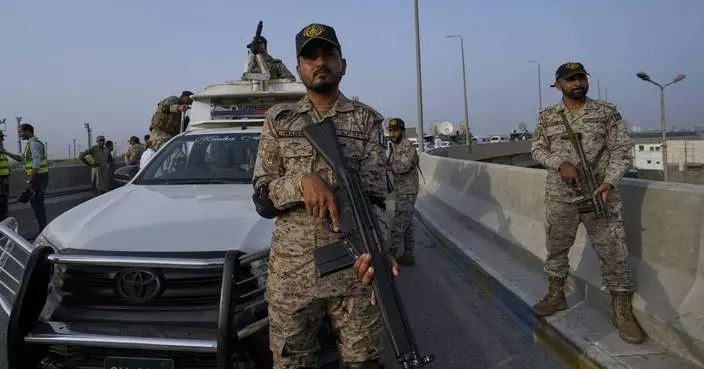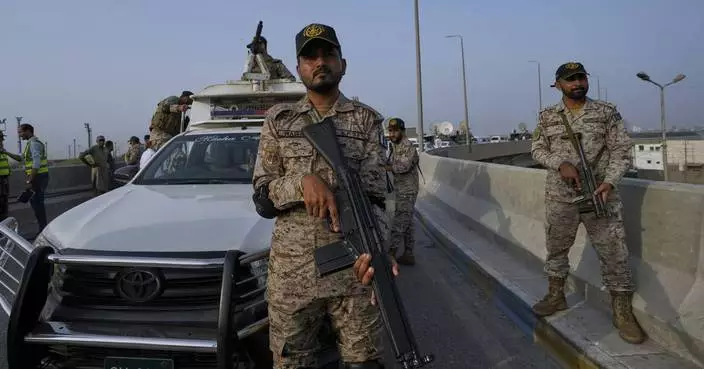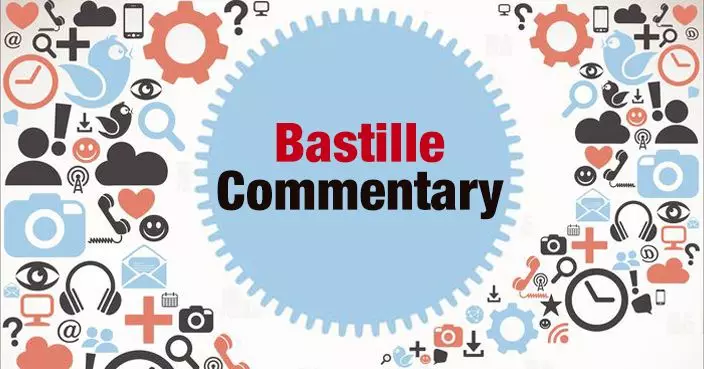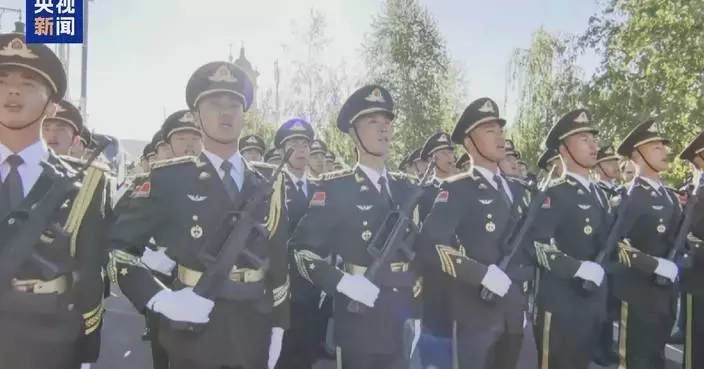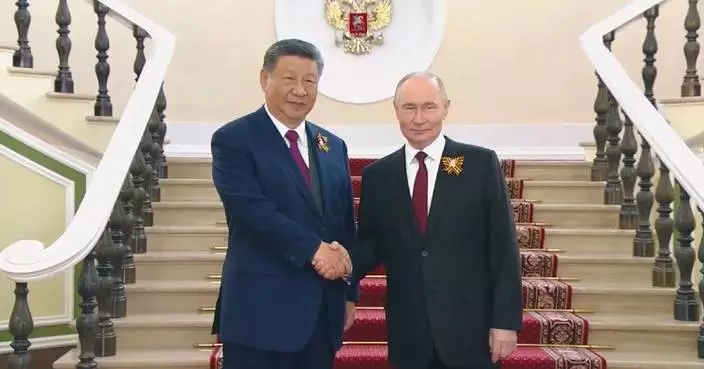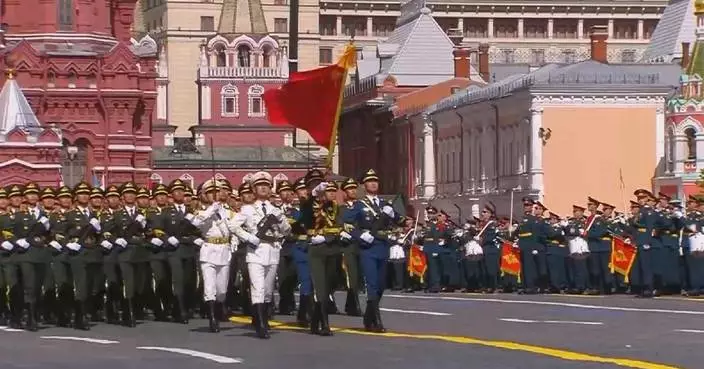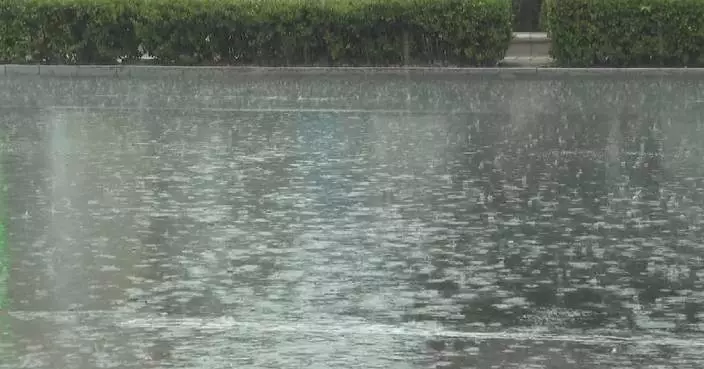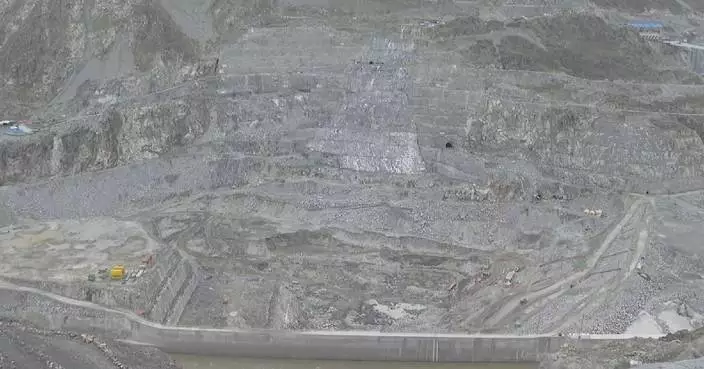ATLANTA (AP) — The Peach Bowl referee declined to call a targeting penalty late in the fourth quarter for a helmet-to-helmet hit by Texas safety Michael Taaffe that could've given Arizona State a chance to kick a winning field goal in the College Football Playoff quarterfinals Wednesday.
The fourth-ranked Longhorns went on to beat the No. 10 Sun Devils 39-31 in double overtime after Texas squandered a 16-point lead in the final period of regulation.
The big hit by Taaffe came after Texas missed a field goal attempt with 1:39 remaining that left the game tied at 24-all. Taking over, Arizona State faced third-and-15 from its own 38 when Sam Leavitt delivered a short pass over the middle to Melquan Stovall.
Taaffe arrived about the time Stovall made the 10-yard reception, their helmets clearly hitting, and the Arizona State receiver was left sprawled on the turf.
No flag was thrown, but referee Larry Smith of the Big Ten conference halted play to check the replay for possible targeting. As Stovall was being helped off the field, Smith announced there was no penalty, leaving Arizona State with fourth-and-5 at its own 48.
If targeting had been called, a 15-yard penalty would have given the Sun Devils a first down at the Texas 37. Instead, they punted the ball away.
Arizona State coach Kenny Dillingham argued with the officials on the sideline. It was clear he didn't agree with the call after one of his own players, star defensive back Shamari Simmons, had to sit out the first half after being ejected from the Big 12 championship game for a targeting penalty.
Texas took advantage of Simmons' replacement, Montana Warren, to hit two long passes for a touchdown on its opening possession.
“I'm going to be honest, I don't know what targeting is,” Dillingham said. “We lost one of our best players in the first half for targeting, and I just don't know what it is.”
Targeting generally refers to a player delivering a hit while leading with the crown of his helmet. While Taaffe's helmet undoubtedly hit Stovall's, it didn't appear the Texas player lowered his head.
Dillingham said he's baffled by the targeting rule.
“I don't want to comment on something that I have to get a better grasp on what it is," the coach said. “I just don't quite understand it. I do want to protect the players, though. So whatever rules are put in place to protect the players, I'm all about it.”
Get poll alerts and updates on the AP Top 25 throughout the season. Sign up here. AP college football: https://apnews.com/hub/ap-top-25-college-football-poll and https://apnews.com/hub/college-football
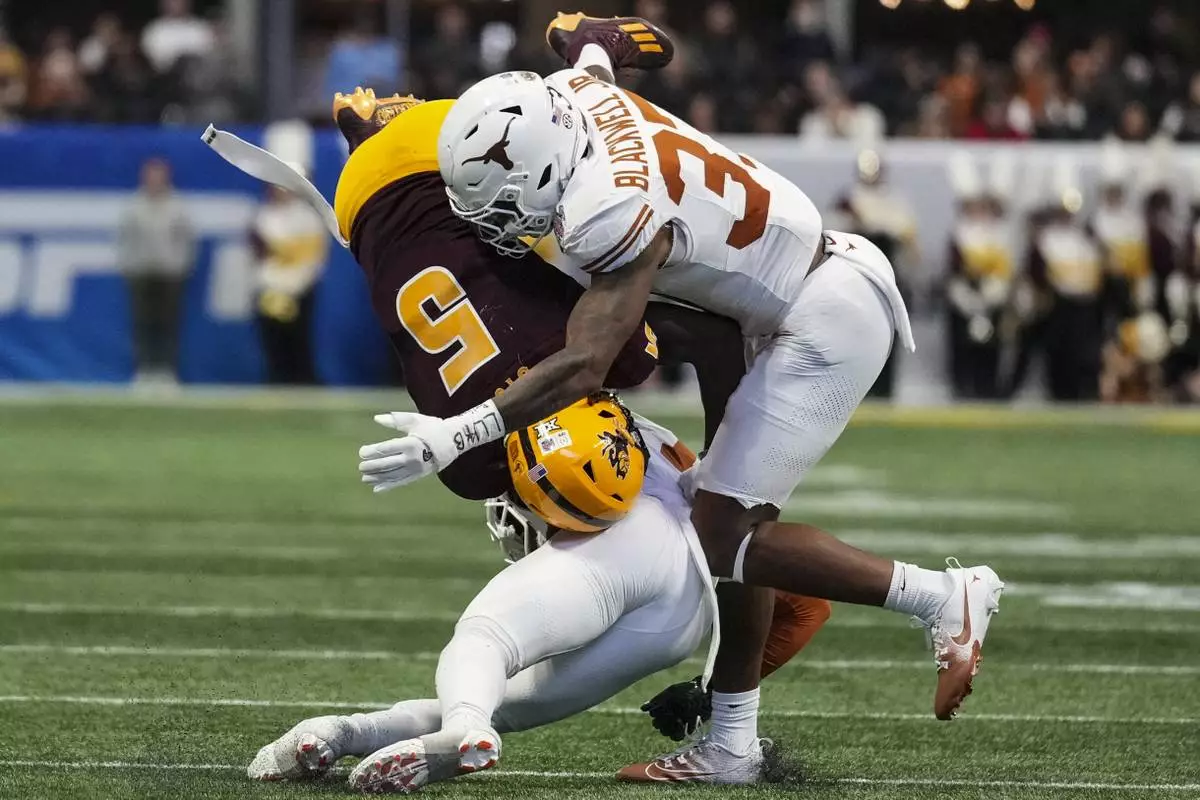
Texas linebacker Morice Blackwell Jr. (37) hits Arizona State wide receiver Melquan Stovall (5) during the first half in the quarterfinals of a College Football Playoff, Wednesday, Jan. 1, 2025, in Atlanta. (AP Photo/Brynn Anderson)
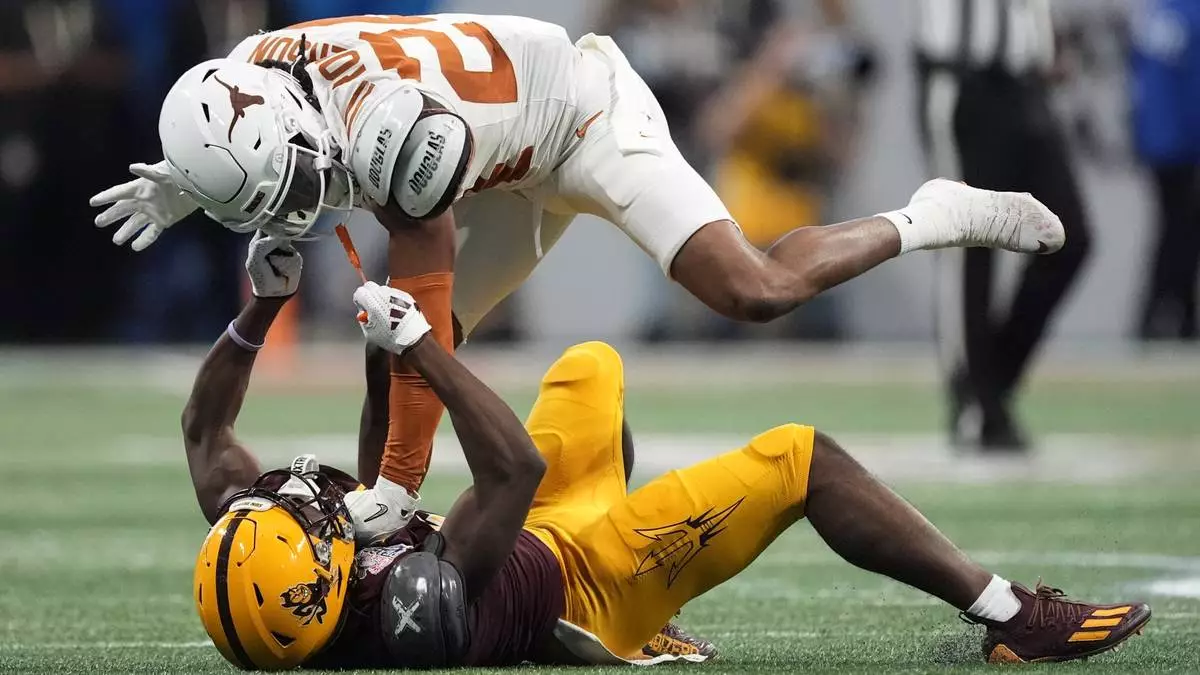
Arizona State wide receiver Melquan Stovall (5) and Texas defensive back Warren Roberson (24) collide during the first half in the quarterfinals of a College Football Playoff, Wednesday, Jan. 1, 2025, in Atlanta. (AP Photo/John Bazemore)
ISLAMABAD, Pakistan (AP) — A gun massacre of tourists on April 22 has pushed India and Pakistan a step closer to war, marking the biggest breakdown in relations since 2019.
Conflict between India and Pakistan is not rare, with the two countries having periodically engaged in wars, clashes and skirmishes since gaining independence from British India in 1947.
What’s different about this escalation is the frequency and intensity of strikes and retaliation.
Although the U.S. had said it would not step in, it is now offering assistance in “starting constructive talks” between India and Pakistan to avoid future conflicts. But calls for restraint from the international community have yet to make an impact.
Here’s a timeline of how the latest conflict has unfolded:
Gunmen shoot and kill at least 26 tourists at a Pahalgam resort in Indian-controlled Kashmir, a major shift in a regional conflict that has largely spared civilians. The unidentified gunmen also wound 17 other people. A group called Kashmir Resistance, which India accuses Pakistan of backing, claims the attack.
Survivors tell The Associated Press that gunmen asked people if they were Hindu and then opened fire.
India downgrades diplomatic ties, closes the only functional land border crossing, and suspends a crucial water-sharing treaty that has survived two wars and a major border skirmish between the two countries.
India launches a manhunt for the Pahalgam assailants. Pakistan denies involvement with the attack.
India and Pakistan cancel visas for each other’s nationals, setting a deadline for them to leave. In retaliation, Pakistan shuts its airspace for all Indian-owned or Indian-operated airlines, and suspends all trade with India, including to and from any third country.
Government ministers on both sides hint the dispute could escalate to military action.
India says its troops exchanged fire with Pakistani soldiers at the Line of Control, the de facto border dividing the disputed Kashmir region.
Pakistan warns it could suspend an agreement that established the Line of Control, in what would be a major and worrying step. The United Nations urges both sides to “exercise maximum restraint.”
Pakistani Prime Minister Shehbaz Sharif vows his government will respond “with full force and might” to Indian attempts to stop or divert the flow of water.
Iran offers mediation, while Trump says he expects them to work out their differences. “There’s great tension between Pakistan and India, but there always has been,” he tells reporters aboard Air Force One.
Authorities in Indian-controlled Kashmir temporarily close dozens of resorts in the scenic Himalayan region after the deadly attack on tourists.
Troops from both countries exchange fire over the Line of Control for a fifth consecutive night.
Pakistan’s Information Minister Attaullah Tarar says his government has “credible intelligence” that India intends to carry out military action against Pakistan in the next 24 to 36 hours.
U.S. Secretary of State Marco Rubio calls senior officials in India and Pakistan in an effort to defuse the crisis. U.S. State Department spokesperson Tammy Bruce says Rubio in his call with India expressed sorrow over the killings in Pahalgam and reaffirmed the U.S.’s “commitment to cooperation with India against terrorism."
Pakistan says Rubio emphasized the need for both sides to “continue working together for peace and stability” in South Asia.
Pakistan test-fires a ballistic missile with a range of 450 kilometers (about 280 miles). Missiles are not fired toward the border area with India; they are normally fired into the Arabian Sea or the deserts of the southwest Balochistan province.
India suspends the exchange of all mail from Pakistan through air and surface routes and bans the direct and indirect import of goods from its neighbor. It also bars Pakistani-flagged ships from entering its ports and prohibits Indian-flagged vessels from visiting Pakistani ports.
India fires missiles on Pakistan, which calls the strikes an “act of war” and vows to avenge those who died in the pre-dawn attack.
The missiles kill 31 people, including women and children, in Pakistan-administered Kashmir and the country’s Punjab province. The strikes targeted at least nine sites “where terrorist attacks against India have been planned,” says India’s Defense Ministry.
Pakistan claims it downed several Indian fighter jets.
India fires attack drones into Pakistan, killing at least two civilians, the Pakistani military says. India, meanwhile, accuses its neighbor of attempting its own attack and acknowledges targeting its archrival’s air defense system.
India evacuates thousands of people from villages near the highly militarized frontier in the Kashmir region. Flights remain suspended at over two dozen airports across northern and western regions of India.
Pakistan's Punjab province announces the immediate closure of all schools and other educational institutions.
India suspends its biggest domestic cricket tournament for a week following the escalating military tensions with Pakistan. Pakistan initially says it will move its own domestic T20 tournament to the United Arab Emirates because of the crisis, but then says it will only postpone matches.
Several northern and western Indian states shut schools and other educational institutions.
U.S. Vice President JD Vance says a potential war between India and Pakistan would be “none of our business.”
India's army says drones have been sighted in 26 locations across many areas in Indian states bordering Pakistan and Indian-controlled Kashmir, including the main city of Srinagar. The drones were tracked and engaged, it adds.
The Group of Seven nations, or G7, urge “maximum restraint” from both India and Pakistan, warning that further military escalation poses a serious threat to regional stability.
Pakistan says India has fired missiles at air bases inside the country and that retaliatory strikes are underway. The Indian missiles targeted Nur Khan air base in the garrison city of Rawalpindi, near the capital Islamabad, Murid air base in Chakwal city, and Rafiqui air base in the Jhang district of eastern Punjab province, according to the Pakistani army's chief spokesperson.
Pakistan says it has fired missiles at Indian military positions.
Residents in Indian-controlled Kashmir report hearing loud explosions at multiple places in the region, including Srinagar, Jammu, and the garrison town of Udhampur.
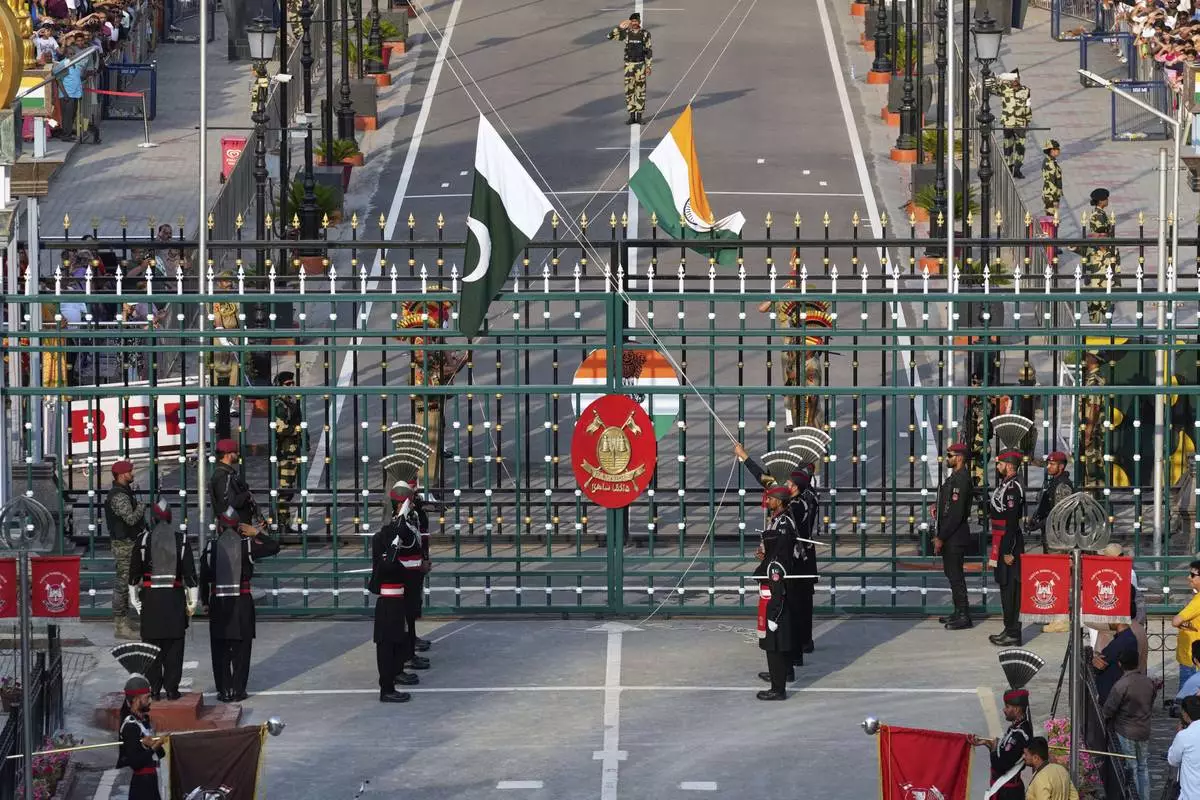
Pakistan's Rangers soldiers, in black, and Indian Border Security Forces soldiers, behind the gate, lower their flags during a daily closing ceremony at the Wagah, a joint post on the Pakistan and India border, near Lahore, Pakistan, Monday, May 5, 2025. (AP Photo/K.M. Chaudary)




